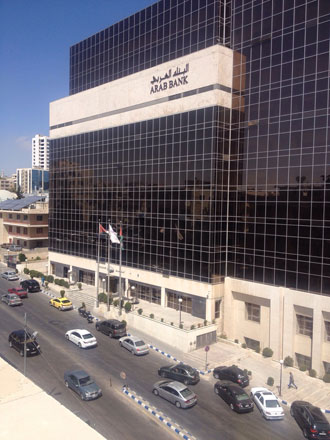AMMAN – Arab Bank has reached a settlement over a litigation brought by hundreds of Americans who accused it of providing financial services to Palestinian group Hamas, a charge the Amman-based bank has always denied.
According to Reuters, the settlement was confirmed on Friday by Michael Elsner, a lawyer for the plaintiffs, and a spokesman for Arab Bank. The terms were not disclosed.
Elsner said the framework of the deal would be finalised over the next few months, Reuters reported.
The settlement comes nearly a year after a US jury in New York found the bank liable for injuries resulting from 24 attacks in Palestine.
The settlement announcement comes just days before the damages portion of the trial was to begin in a US federal court in Brooklyn, where a jury would have determined how much compensation the bank would have to pay to 17 plaintiffs, Agence France-Presse (AFP) reported.
Originally set for Monday, a federal judge on Friday formally postponed the start of the damages trial until May 2016, according to AFP.
The case, known as Linde vs Arab Bank, started in 2004 when a federal lawsuit was filed by hundreds of plaintiffs against the bank for allegedly holding accounts that financed attacks they claim killed members of their families in Israel and the Palestinian territories between 2001 and 2004.
Arab Bank was first established in Jerusalem in 1930. With a capital of over $30 billion, the bank operates through more than 600 branches in 30 countries across five continents.
